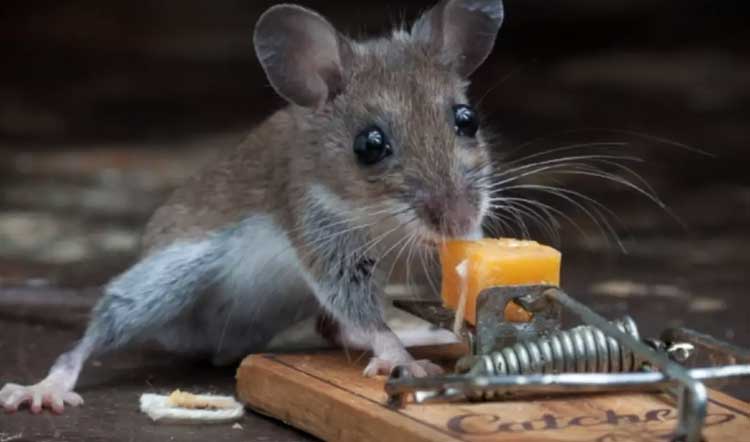Mice can cause major damage and spread diseases. They are also known to carry allergens. Signs of mice include droppings, gnawed holes in food packaging, and musky smells.
Seal any gaps and cracks with steel wool. This is difficult and uncomfortable for mice to chew through and creates a natural deterrent.
1. Seal Up Any Gaps
The scritching sound of mice scurrying around your walls is enough to keep anyone awake. The first step to getting rid of them is to seal up the gaps that they can crawl through.
Mice look for places where food and shelter are readily available. Niedermeier suggests examining the following “hot spots” for potential mouse-infested areas:
Check the cracks around pipes, in basement foundations and in the walls. Fill any cracks that are bigger than a pencil with steel wool or copper mesh (it irritates their teeth and isn’t chewable by mice) or use an insulating foam pest blocker to close them up. You can also install door sweeps and rat guards to further prevent rodents from entering your home. Also consider using an ultrasonic device, which emits high-pitched sounds that are annoying to mice.
2. Eliminate Food Sources
Mice are on the hunt for food, warmth and shelter. They’re not going to give up easily, especially if they’ve found a safe place to stay.
Homeowners can help by keeping an eye out for scurrying sounds or squeaking in the walls, greasy smudges on wall and floorboards, and gnawed or chewed up food packaging or boxes. Also, check pantries, voids under or behind cabinets, basement crawl spaces and attics, and insulation for signs of mice, Browse around this website.
Vacuum and sweep regularly to remove crumbs that can provide mice with an easy meal. Store food in airtight containers, and keep trash cans tightly closed. Trim back shrubs and trees that can be used as hiding or nesting places. Using natural deterrents like essential oils is also helpful for a pest-free household.
3. Clean Up Any Droppings or Urination
Mice can cause serious damage to your home and property, especially if they find their way into your pantry and cupboards, where they’ll gnaw on food containers, boxes, or bags. They can also contaminate foodstuffs with their urine and droppings, which can contain dangerous bacteria like hantavirus or lymphocytic choriomeningitis.
Look for signs of a mouse infestation, including gnaw marks and scurrying sounds in the walls or ceiling. Watch out for musty rodent odors, too.
Seal any narrow gaps with 100% silicone caulk or a foam insulation pest blocker. If you have larger holes, stuff them with steel wool (which is both ineffective and impossible to chew) before sealing with joint compound or a caulk; this will create a natural barrier that mice won’t crawl through.
4. Get a Cat
Mice are on a relentless search for food, warmth and shelter and can wiggle into your home through even the smallest of cracks. Check for potential entry points in pantries, voids under or behind appliances, basement crawl spaces and attics.
Keeping counters and floors free of crumbs and storing foods in sealed containers will also help deter mice, as will regularly cleaning up droppings or urine (wear gloves and a mask when doing so). If you’re not allergic to cats, a house cat can be an effective rodent control measure as mice are hard-wired to fear the strong pheromones cats exude. You can also plant mouse-repellent plants, such as garlic, onions, daffodils and lavender, in your yard to keep the unwelcome guests at bay.
5. Use Essential Oils
Mice are unhygienic and carry diseases that can pose a health risk to your family. In addition, they cause damage to your property by chewing on walls and wires. Keeping your home clean, sealing gaps and removing food sources are the main things you can do to prevent mice from invading.
Using peppermint oil or clove oil to spray areas that mice access can help deter them. You can also saturate cotton balls with these oils and place them in places they frequent like drawers, cupboards or near home entry points.
Lastly, using steel wool to stuff cracks and holes that are larger than a quarter inch can help prevent mice from entering your house. You can also hang slices of onion near any areas you see mouse droppings or nesting. The strong smell will repel them.

